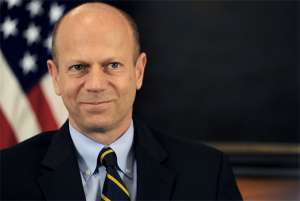Special to WorldTribune.com
WASHINGTON — The United States, despite concern from NATO allies, has decided to play down discrepancies in Syria’s chemical weapons program.
Assistant Defense Secretary Andrew Weber said the Pentagon has determined that the regime of President Bashar Assad has surrendered virtually all of its CW stockpile and that any discrepancies in Syria’s reporting to the Organization for the Prohibition of Chemical Weapons were marginal.

Weber said Israel agrees with the assessment that the Syrian CW threat has been eliminated. He cited an Israeli decision to suspend a program to protect the public from such an attack.
“For me, the best evidence of that is a decision earlier this year by the government of Israel to stop the distribution of gas masks to its public,” Weber said.
Weber said the Pentagon envisioned a problem with Syria’s CW stockpile, most of which was stored in one- or two-ton liquid containers, from the start of the Sunni revolt in 2011.
In 2012, the Pentagon, based on intelligence, held discussions on the CW threat and ways to eliminate the stockpile, including the development of technology called the field deployable hydrolysis system.
“[They determined that the entire stockpile would fit on fewer than 200 trucks and could be loaded up and driven across the border,” Weber recalled.
“We were thinking perhaps of having a chemical weapons destruction capability available in Jordan.”
“There’s a system in place, led by the Nobel Prize-winning Organization for the Prohibition of Chemical Weapons, the OPCW, to work with the Syrian regime and the international community under the United Nations Security Council resolution to resolve any lingering discrepancies,” Weber said.
In a roundtable on Oct. 7, Weber acknowledged that the Assad regime might not have declared all of its CW stockpile. But the official, responsible weapons of mass destruction programs, said any concealment involved small amounts of what was termed tactical stockpiles.
On Oct. 1, OPCW announced the conclusion of its mandate but said it would continue to support operations in Syria. The organization referred to the prospect that Damascus still held a CW stockpile despite the elimination of 1,300 tons of mostly sarin and mustard gas.
“The OPCW mission in Syria will continue to deal with the destruction of chemical weapon production facilities and clarification of certain aspects of the Syrian initial declaration,” OPCW said.

You must be logged in to post a comment Login